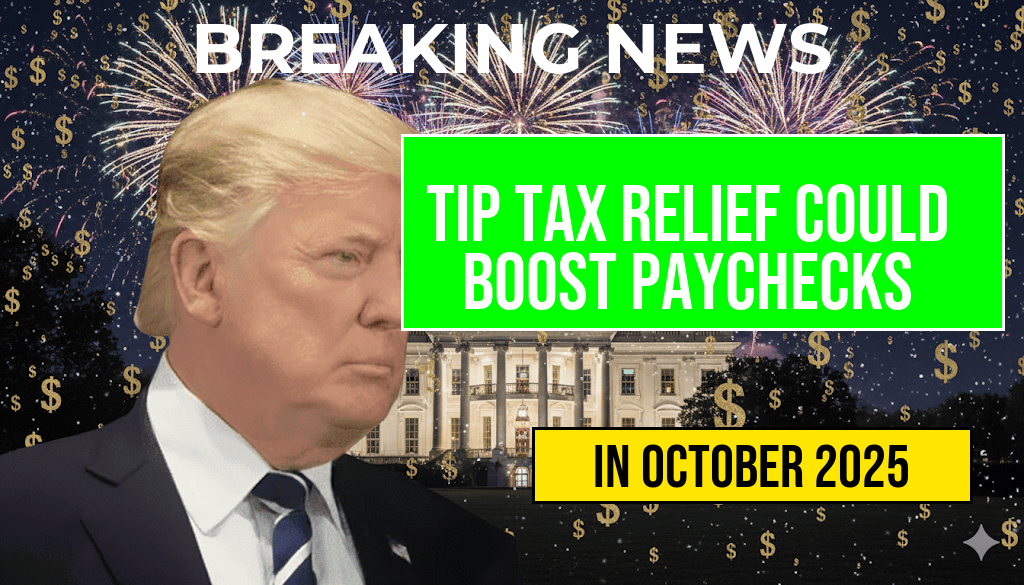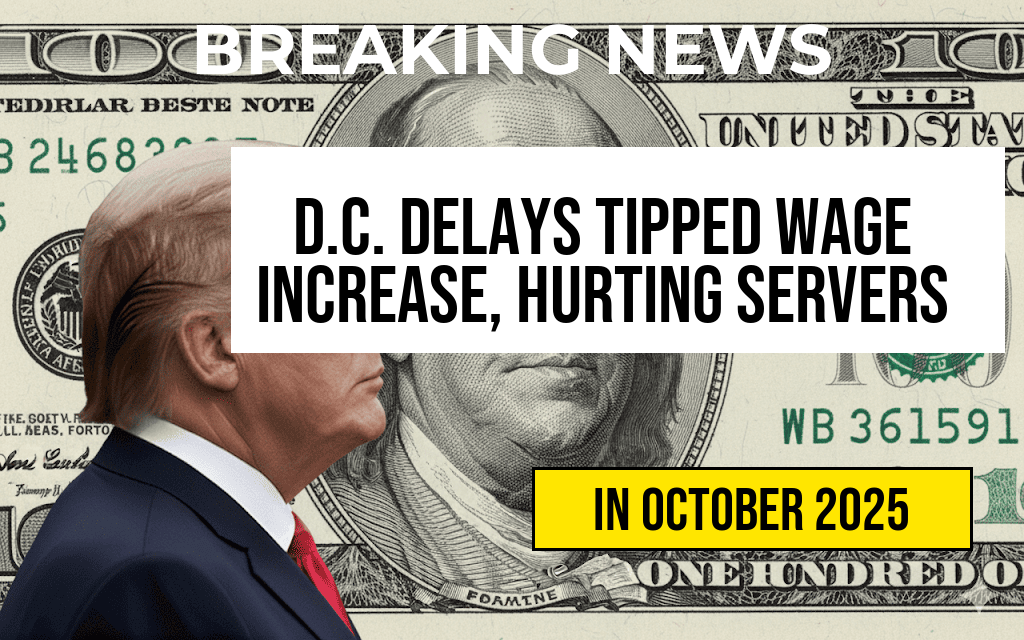The recent proposal to eliminate taxes on tips could have a substantial impact on the earnings of service industry workers, potentially adding as much as $25,000 to their annual paychecks. This significant increase is particularly relevant for professions heavily reliant on gratuities, such as waitstaff, bartenders, and taxi drivers. However, while workers may see a boost in their take-home pay, they will still be subject to payroll taxes on their overall income. This nuanced financial landscape has raised questions among workers, employers, and policymakers about the broader implications of such tax changes on the economy and individual livelihoods.
Understanding the Proposal
The initiative to eliminate taxes on tips emerges from ongoing discussions about wage disparities and the economic challenges faced by service workers. Advocates argue that this change could provide much-needed relief and improve the quality of life for those who often depend on tips for their income. Currently, tips are subject to federal income tax, which can significantly reduce the net earnings of workers in tipping professions.
Potential Impact on Earnings
To grasp the potential financial benefits, consider the following:
- Many service workers report earning significant portions of their income through tips.
- Estimates suggest that eliminating taxes on these gratuities could result in an additional $25,000 per year for workers in high-traffic hospitality or service roles.
- In states with a lower minimum wage for tipped employees, this change could be even more impactful, as a larger percentage of their income derives from tips.
Payroll Taxes Still Apply
Despite the elimination of tip taxes, workers will still face payroll taxes on their total earnings. This includes Social Security and Medicare taxes, which remain mandatory regardless of the source of income. It’s crucial for workers to understand that while they may take home more from their tips, their overall tax burden won’t disappear entirely.
Comparison of Earnings with and without Tax on Tips
| Scenario | Annual Income from Wages | Annual Income from Tips | Total Income | Tax on Tips | Net Income |
|---|---|---|---|---|---|
| Current System | $30,000 | $25,000 | $55,000 | $5,000 | $50,000 |
| No Tax on Tips | $30,000 | $25,000 | $55,000 | $0 | $55,000 |
Concerns and Considerations
While the proposal may seem advantageous, several concerns have emerged. Critics argue that eliminating taxes on tips may lead to a loss in government revenue, which is essential for funding public services. Additionally, there is apprehension about how this change could affect the stability of wages in the service industry. Employers may feel pressured to reduce base wages, relying instead on tips to compensate workers.
Wider Economic Implications
The broader economic implications of the no-tax-on-tips proposal are complex. Without the tax revenue generated from tips, local and state governments might face budgetary constraints, potentially leading to cuts in essential services. Furthermore, there are concerns about how this change could affect consumer behavior. With higher disposable income, consumers may spend more, which could stimulate the economy but also lead to inflationary pressures.
Looking Ahead
As discussions about this proposal advance, it will be crucial for policymakers to consider the perspectives of all stakeholders involved. Balancing the needs of service workers with the fiscal responsibilities of government will require thoughtful deliberation. The potential elimination of taxes on tips represents a significant shift in how income is taxed in the service industry, one that could redefine compensation structures for years to come.
For more information on the implications of taxation in the service industry, you can visit Forbes or check out details on tax regulations at Wikipedia.
Frequently Asked Questions
What does “No Tax on Tips” mean for my paycheck?
The phrase “No Tax on Tips” indicates that gratuities received by employees in certain industries are not subject to federal income tax, which can potentially lead to a significant increase in your overall earnings, potentially boosting your paycheck by as much as $25,000 annually.
Are payroll taxes still applicable on tips?
Yes, while there may be no federal income tax on tips, payroll taxes such as Social Security and Medicare taxes still apply to those earnings. This means that while you may see an increase in your take-home pay, you will still be contributing to these taxes.
How can I report my tips to avoid tax issues?
To ensure compliance with tax regulations, employees should accurately report their tips to their employer. It is advisable to keep a record of all tips received and report them on your W-2 form to avoid any potential tax issues.
Will my employer be affected by the no tax on tips policy?
Employers will still need to account for payroll taxes on tips provided to their employees. The policy may reduce the overall tax burden associated with tips, but it does not eliminate all tax obligations for either party involved.
What industries benefit most from the no tax on tips rule?
The “No Tax on Tips” rule primarily benefits employees in service-oriented industries, such as restaurants, hotels, and barber shops, where tips make up a significant portion of their income, leading to higher overall earnings.






